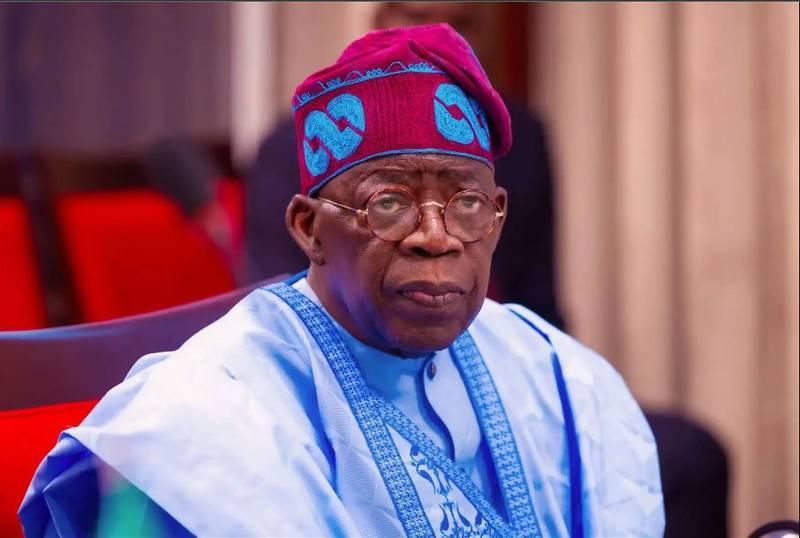Africa-Press – South-Sudan. The Nigerian government has announced that it rejected a U.S. offer to deport Venezuelans. This came days after South Sudan accepted U.S. deportees.
According to the DW report, Nigeria’s Foreign Minister, Yusuf Tuggar, cited Nigeria’s existing domestic challenges and ongoing threats from President Donald Trump regarding tariffs and visa changes.
On Friday, Foreign Affairs Minister Yusuf Tuggar said Nigeria would not bow to increased pressure to accept deported Venezuelans from US President Donald Trump.
Tuggar said Trump was attempting to strong-arm African nations.
“You have to also bear in mind that the US is mounting considerable pressure on African countries to accept Venezuelans to be deported from the US, some straight out of prison,” said Tuggar in an interview on Nigerian television.
“It will be difficult for a country like Nigeria to accept Venezuelan prisoners into Nigeria. We have enough problems of our own,” said the foreign minister. “The issue of accepting Venezuelan deportees, honestly, I don’t think is something that Nigeria is in a position to work with.”
On July 5th, South Sudan’s Ministry of Foreign Affairs and International Cooperation confirmed the arrival of eight migrants, including one South Sudanese, who had been deported from the United States of America over the weekend.
In a press release on its official Facebook Page, the Ministry stated that the individuals were received on July 5th at Juba International Airport, following a standard deportation procedure undertaken by the U.S.
Why is Trump pressuring Nigeria to accept migrants?
One reason Trump may be using rougher tactics with Nigeria is its membership in the BRICS+ political and economic bloc.
Created in 2006 by the acronym-giving countries Brazil, Russia, India and China (BRIC), with South Africa’s 2010 addition, the BRICS club has grown to include developing nations such as Egypt, Ethiopia, Indonesia, Iran and the United Arab Emirates (UAE) and accounts for roughly 37% of global economic output.
Nigeria joined the 11-member BRICS+ bloc in January and President Bola Tinubu attended the group’s July 6-7, 2025, summit.
As the summit wrapped up, Trump announced that the US would slap 10% punitive tariffs on imports from BRICS+ countries.
Tuggar, however, said it was unclear if recent US measures were directly related to Nigeria’s participation in the summit, which Trump slammed as an “anti-American” event.
What other African countries has Trump tried to pressure?
Nigerian President Tinubu was not among those African leaders invited to the White House on Wednesday when Trump welcomed the presidents of Gabon, Guinea-Bissau, Liberia, Mauritania and Senegal.
Liberian and US sources reported that Trump used the opportunity to ask each to take in third-country migrants deported from the US.
The Wall Street Journal this week reported that the US State Department sent a document to African leaders invited to Wednesday’s White House event calling on them to agree to the “dignified, safe, and timely transfer from the United States” of third-country nationals.
Trump has repeatedly sought — at times successfully — to send immigrants he is unable to deport home to third-country nations instead.
Trump’s ‘reciprocal’ visa restrictions for Nigerians
Speaking of the US pressure campaign, Tuggar said: “I think it would be unfair to insist that Nigeria accepts 300 Venezuelan deportees. Maybe that might just even be the beginning.”
The foreign minister did not expand on what might come next but addressed one of the other tools the Trump administration has employed as a means to leverage US advantage, brushing off US claims that its new visa policy is reciprocal.
The US Mission in Nigeria this week announced updates to non-immigrant visa policy for Nigerians.
Tuggar says the only change Nigeria has made is that 90-day visas are now issued electronically rather than upon arrival — as in the US. The change, he said, is intended to streamline the process and make it more efficient.
Tuggar added: “We are talking to the Americans. We are engaging them. We are also explaining and reminding them that we issue” visas the same way that they do.
“Our visa doesn’t say that every American is only being given 90-day visas or three months or whatever. We give Americans… there are loads of Americans that have these long-term visas… it is not based on reciprocity.”
For More News And Analysis About South-Sudan Follow Africa-Press






